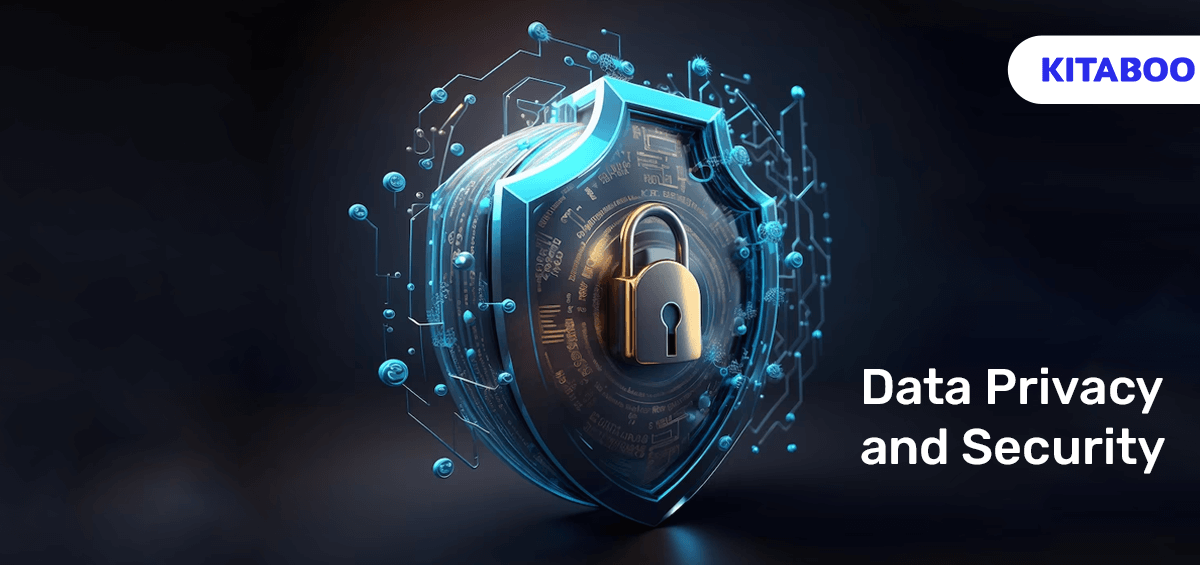The pandemic significantly accelerated the transformation to a digital education environment. Educational institutions worldwide have seen widespread adoption of third-party collaboration apps, cloud-based EdTech solutions, and collaboration tools.
The result is that schools are now collecting large amounts of data to deliver customized learning experiences for students. As digital technology reshapes education, ensuring student data privacy and security takes center stage.
Research reveals that 80% of lower educational organizations were hit by ransomware attacks in 2022, up from 56% in 2021. This blog sheds light on aspects of student data privacy and security that apply to K12 education.
Table of Contents:
I. What is Student Data Privacy?
II. Student Data Privacy and Security Laws
- Children’s Online Privacy Protection Rule (COPPA):
- Family Educational Rights and Privacy Act (FERPA):
- Children’s Internet Protection Act (CIPA):
III. Student Data Privacy and Security Challenges
- Lack of Training
- Data Breaches
- Security Risks in Online Learning
- Data Sharing
- Profiling and Tailored Advertising
IV. How to Protect Student Data?
V. Wrapping Up!
I. What is Student Data Privacy?
The modern education system requires students to give and receive a wide variety of data that helps educators better understand them. From attendance to grades to disciplinary actions, a database is an excellent way to store various records.
While this data can be easily accessed by educators and students from anywhere, this also makes it more vulnerable to cyber-attacks. Additionally, most EdTech apps and websites used by students are now tracking personal details and learning behavior from digital footprints.
These third parties often sell this data to advertisers, helping them target a potential new consumer. That’s why safeguarding students’ privacy is now more important than ever.
K12 publishers are leveraging DRM-enabled digital publishing platforms like KITABOO to securely and easily distribute their materials to students. Third-party DRM solutions offer robust authentication and encryption measures, preventing piracy or unauthorized access.
II. Student Data Privacy and Security Laws
Regulatory bodies have enforced several data protection laws to safeguard student data online. Educational publishers and schools need to ensure compliance with these laws while providing online education.
Failure to comply with the student digital privacy regulations can lead to stiff penalties and consequences. Below are three prominent student data privacy laws.
1. Children’s Online Privacy Protection Rule (COPPA):
This federal rule imposes certain restrictions on online services and website operators that collect information from children.
It aims to safeguard the online privacy of children under 13 years of age. COPPA ensures that parents’ consent is acquired before any data is collected.
2. Family Educational Rights and Privacy Act (FERPA):
This federal law grants certain rights to eligible students (18 years and above) and parents regarding the privacy of student data.
It establishes guidelines for maintaining the confidentiality of student education records. FERPA also outlines the conditions under which educational institutions can reveal student information.
3. Children’s Internet Protection Act (CIPA):
This federal law mandates the use of filtering technology to restrict access to harmful content on the Internet. It addresses the need for internet safety in libraries and schools.
CIPA requires schools to educate students on the responsible use of online resources to ensure internet safety.
Also Read: eLearning Training Solutions
III. Student Data Privacy and Security Challenges
Student data privacy rules have made great progress in safeguarding private data.
However, there are still several problems that have to be addressed to ensure the safety of all student data. Below are some of the major challenges:
1. Lack of Training
In the absence of adequate training, trainers or teachers might accidentally share student’s private information. They may not have adequate security measures or not know how to operate digital tools properly.
To empower teachers with the skills and information required for student data safety, conducting comprehensive training programs becomes paramount.
2. Data Breaches
Educational institutions maintain detailed records of students, including their personal information, academic records, and health information. Thieves and hackers are always behind such valuable information.
Data breaches can lead to identity theft, fraud, misuse, or illegal access to student data, posing a significant security risk.
3. Security Risks in Online Learning
Remote learning relies heavily on cloud services and third-party apps, raising concerns over encryption, data storage, and data leaks. By using robust security measures, you can strike a balance between student data safety and the benefits of digital learning.
Partnering with a DRM-enabled digital distribution platform like KITABOO is a great way to protect digital media from unauthorized use.
4. Data Sharing
Companies that create and sell educational technology often collect student data. Many times, they share student information with third parties without obtaining appropriate consent.
This lack of control over student data after it leaves the educational institution poses a significant threat to privacy.
5. Profiling and Tailored Advertising
Gathering student data can be used to create profiles and send personalized ads. This raises questions about informed consent, privacy, and the possibility of abuse.
Maintaining a balance between protecting students’ privacy and personalizing education is a challenging task that requires careful consideration.
IV. How to Protect Student Data?
You can improve student data privacy and security in several ways. While some measures can be more complicated than others, implementing every step is crucial to building a strong system for safeguarding student data privacy. Some of the ways are:
- Encryption: Protect any type of sensitive information, from voice messages to emails. You can use several encryption tools and services to provide this extra layer of security.
- Data Privacy Policies: The third-party apps or tools used by educational institutions must have a data privacy policy on how they treat user information. Ensure this policy aligns with your school’s safety and ethical guidelines.
- Unused Files Deletion: Files downloaded from the cloud become a possible threat after they’ve been used. They can be used as a backdoor for hackers or potentially contain malware. Make sure to delete these unused files regularly.
- Training: Educating administrators, students, and educators about online data safety is a must. You can conduct training sessions and use resources like mock data to demonstrate tools to prevent data breaches.
- Careful Data Sharing: Data breaches often happen from inside an institution. To minimize internal risks, it’s essential to restrict access or public discussion of student records. The fewer people who have access, the lesser the chance of a data leak.
- DRM protection: Choose a digital publishing platform that offers secure cloud-based content distribution. With DRM protection and encryption, you can ensure that your content can be accessed only with proper authentication and authorization.
V. Wrapping Up!
In the wake of the pandemic-led transition to remote learning, regulatory bodies are focusing on making data protection laws more stringent. Thus, implementing effective strategies to provide a secure learning environment is the way forward for publishers and educators.
If you’re looking for a reliable third-party DRM solution, look no further than KITABOO. With 128-bit encryption along with DRM, KITABOO is all you need to secure the future of education. You can now control who can access your digital content, enforce copyrights, track usage, and encrypt your content by making us your technology partner.
To learn more about how KITABOO can help you with student data privacy and security, schedule a demo today!
Suggested Reads:
Discover How An Ebook Conversion, Publishing & Distribution Platform Can Help You
Kitaboo is a cloud-based content platform to create-publish & securely distribute interactive mobile-ready ebooks.
You May Also Like








